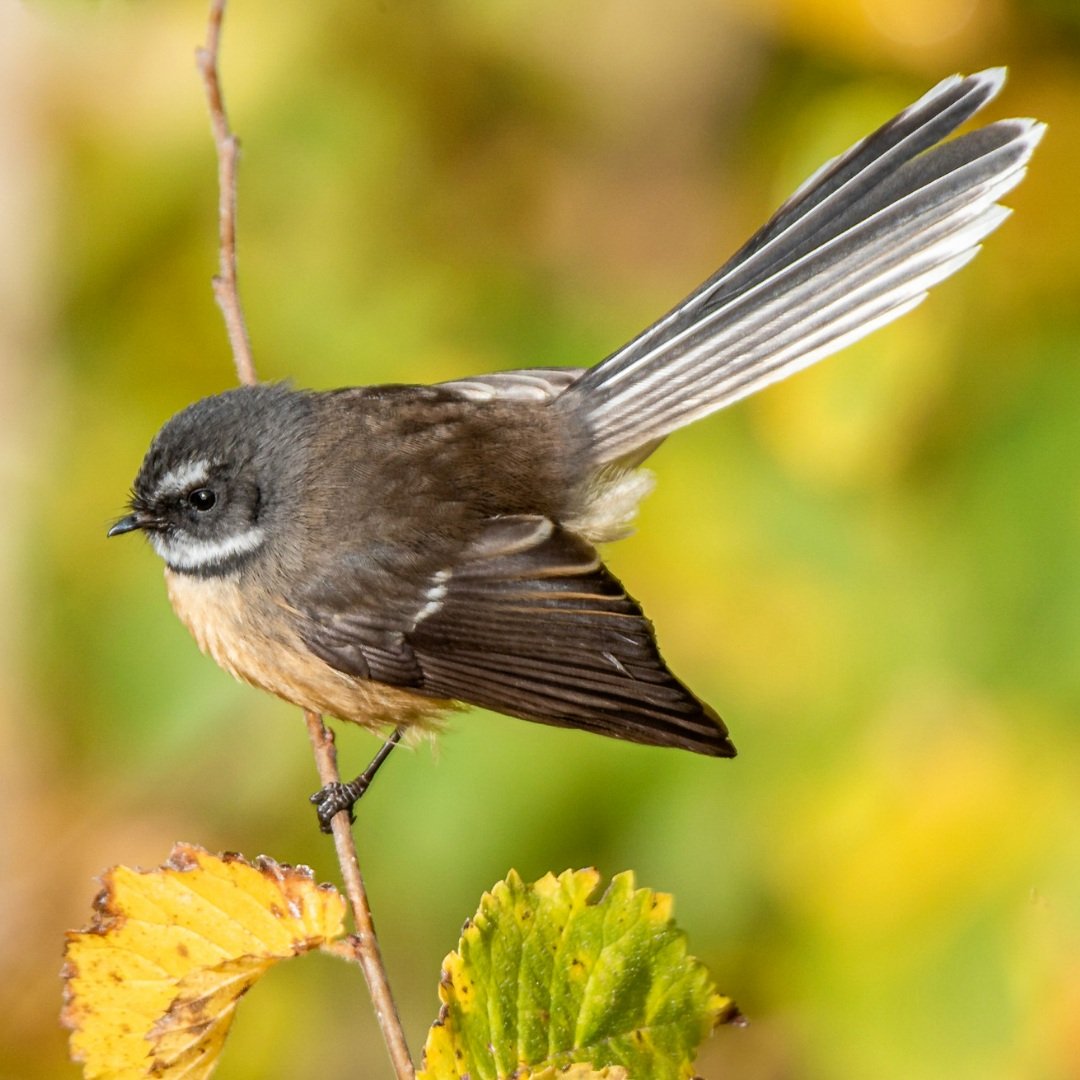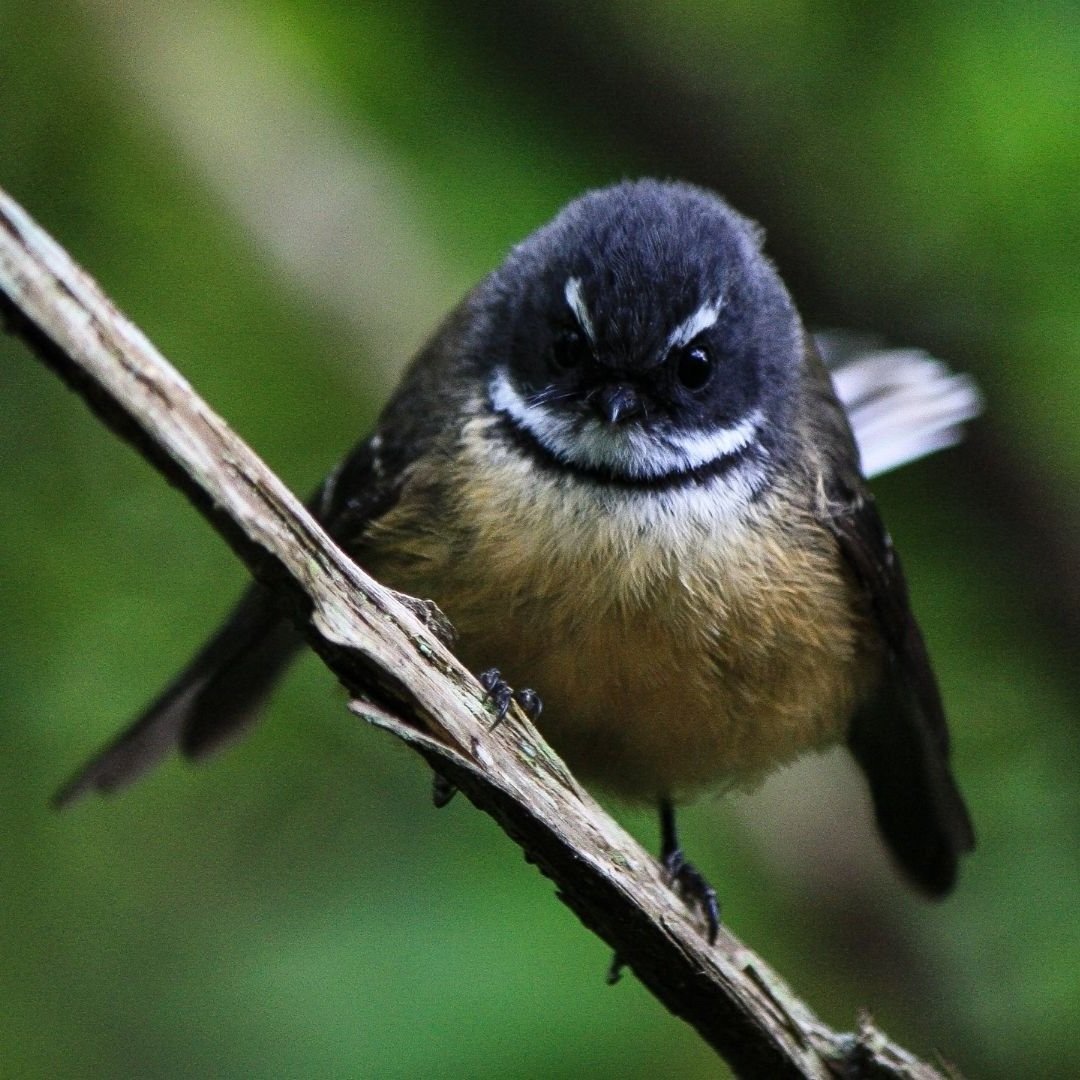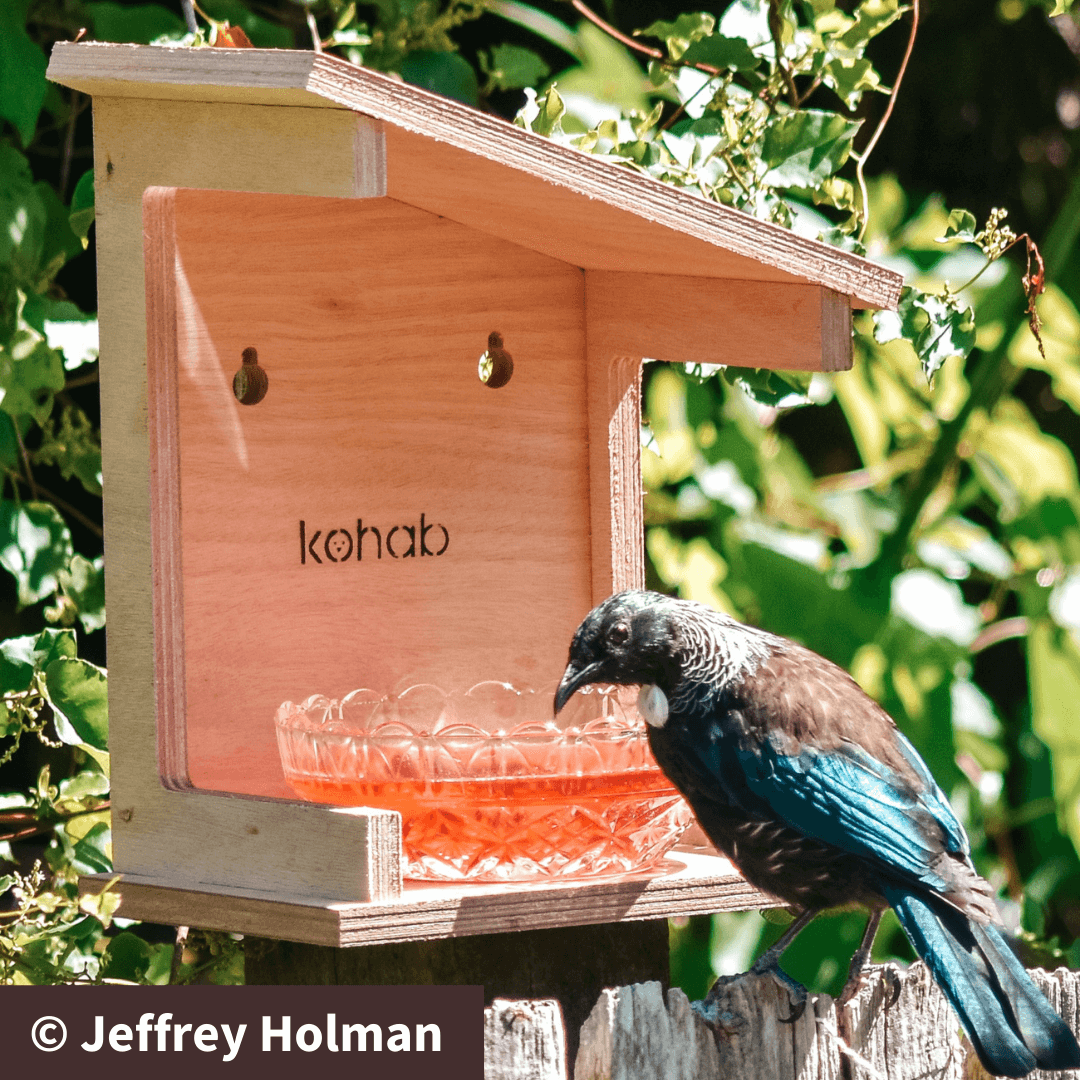Fantail (Pīwakawaka)- Facts and Info
The friendly Fantail is one of New Zealand's iconic birds and one that everyone is always happy to see.
The Fantails tail is more than half the length of its body and what helps it turn so quickly in the air.
The New Zealand Fantail is endemic to our country and is a small cheerful little bird. Its beautiful fanned tail takes up more than half its length and is what enables it to twist and turn so quickly during flight. But don't be fooled by this tiny cute bird, it's actually an insect-killing machine!
What do Fantails eat?
You won’t get the Fantail visiting your bird feeder as they live off live insects that they catch on the wing. This is why they dart about so fast while flying, they are catching their food.
How do Fantails feed?
The Fantail has small bristles around its beak to help direct the insects in for dinner.
Fantails use three different methods for catching their prey:
1. Feeding in Association
The Fantail is known as a friendly bird as it often follows people who are out walking. You are likely to first know when a Fantail is near as you will hear its squeaky cheet cheet as it flys down from its high perch. Then as it follows behind you, at a safe distance, its call changes to a pip hunting call as it snaps up insects that you disturb as you walk.
2. Hawking
It also feeds by Hawking, this is where it sits up high and uses its sharp eyesight to spot bugs and insects and then swoops down to grab them.
3. Flushing
Flushing is where it uses its large fanned tail to ruffle up the foliage on bushes, trees or long grasses so it can disturb the insects and make them fly out so they can gobble up them up.
How to attract Fantails to your garden?
Fantails love a bath, so putting a birdbath in your garden is a great way to attract them. Your birdbath doesn't need to be a work of art, just a bowl of water in a safe place will do. For more info and ideas on birdbaths take a look at our Kohab Life blog: 5 tips for setting up a birdbath.
The best long term way to attract and support Fantails is to plant insect-friendly plants, let leaf litter accumulate and not use insecticides. This will support insect life and biodiversity in your garden and in turn help the happy Fantail to prosper.
Pīwakawaka (Fantail) in Māori mythology
In Māori mythology, the Pīwakawaka is a messenger, bringing news of death from the gods to the people. Although this doesn’t mean it should be feared as its meant as an opportunity to prepare for the event.
It is said that the Fantails’ bulbous eyes and fast flitting flying style have come from being squeezed by Māui for not revealing where his ancestress Mahuika, the fire deity was.
There are 19 different Māori names for the Fantail. And here they are...
... hīrairaka; hītakataka; hīwai; hīwaiwaka; hīwakawaka; kōtiutiu; kōtiutiu; pīrairaka; pīrakaraka; pīrangirangi; pītakataka; pīwaiwaka; pīwakawaka; tīaiaka; tīaka; tīakaaka; tieaka; tīrairaka; tīrakaraka; tītaiwaka; tītakataka; tītakataka; tītīrairaka; tīwaiwaka; tīwakawaka; wakawaka.
For more info on the Fantail, or pīwaiwaka, take a look at the Kohab New Zealand Bird Guide. You’ll find lots of info on all the NZ garden birds you are likely to kohabit your garden with.






